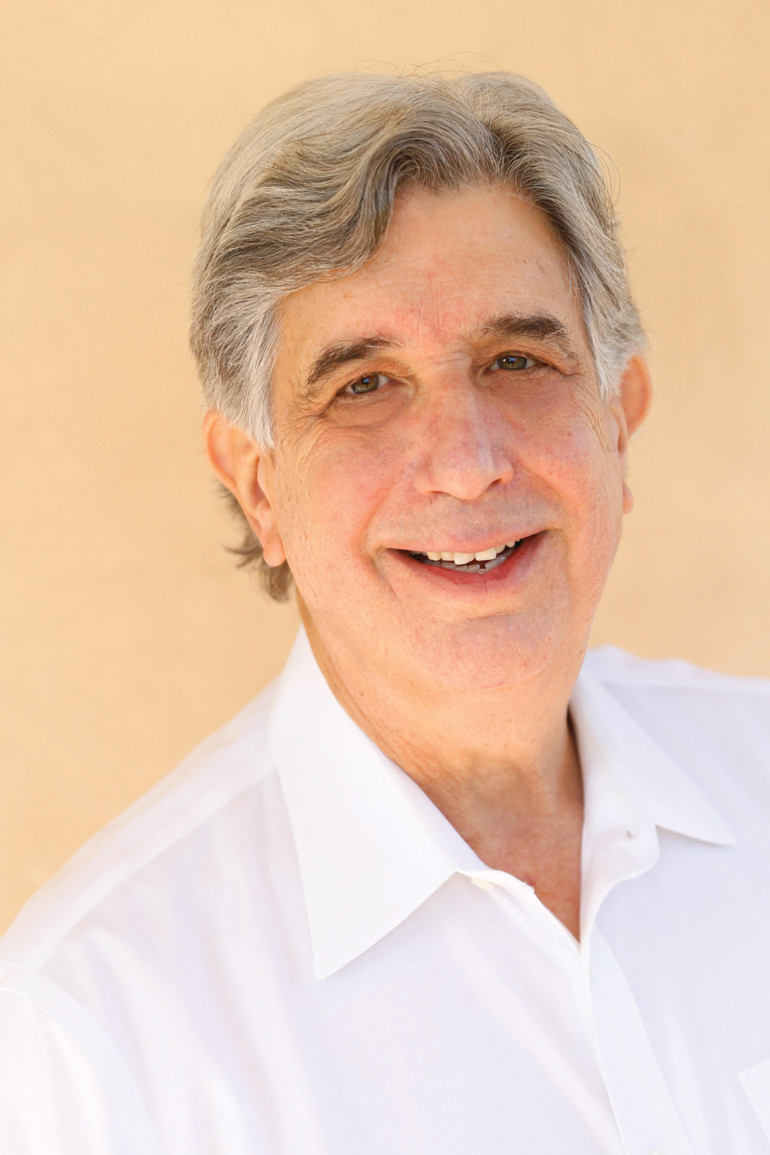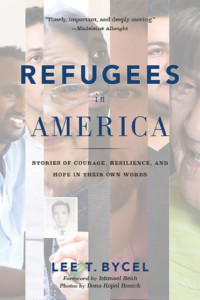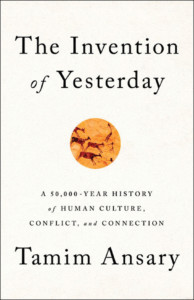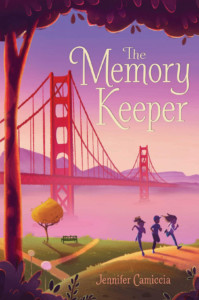MM: When did the conceptualization of this book begin?
LB: The work began when I first went to refugee camps in 2004 in eastern Chad. But the conceptualization of writing this kind of book really started around four years ago, when I started to see the kind of political rhetoric we were having in our country and how many people were losing sight of the human story of the refugee. I began wondering how I could construct a book that would be apolitical, but sort of reclaim the story of the refugee. I want to start a conversation, and this book offers a lens into 11 powerful stories.
MM: What would you say to someone who doesn’t think the immigration process is their problem or applies directly to their lives?
LB: I understand it. We’re living in a time where people are feeling overwhelmed. Every day it’s a new issue, right? Health care. Education. The economic disparity. The refugee situation. The isolation of it all. But of those people I would ask: What is a refugee? No one is born with the intention of being a refugee; circumstances simply arose — whether around race, religion, etc. — that made it impossible to live in one’s own country. When you leave your own country, you leave behind your home. Family. Language. Culture. Familiarity. You have to learn all kinds of new things. Aren’t we all, in some ways, refugees? Refugees from childhood, from our youth, from our dreams? I don’t mean to simplify the plight of those who have been forced from their homelands, but (to identify) what, within ourselves, it might mean to be a refugee. What would it mean for you to leave everything behind? What have we left behind, and what have we reclaimed?
MM: What do those featured in the book have in common?
LB: None of them want to be labeled a refugee. They, like anyone else, don’t want to be limited to a single story. We all have stories that are complex. We’re human beings. And so are they. They want this country to be good, and safe.
MM: What do you consider the crux of the refugee crisis?
LB: There’s a question I ask a lot in my classes. In our world, we’ve seen incredible advances in technology, science and medicine. It’s unbelievable. Have we advanced humanly? All around the world, people are brutalizing other people. How can we foster that human sort of advancement?
Local Page Turners
Refugees in America: Stories of Courage, Resilience, and Hope in Their Own Words by Lee T. Bycel (San Francisco), Rutgers University Press, $26.95.
From the story of a 93-year-old Polish grandmother who survived Auschwitz to that of a blind, undocumented immigrant from El Salvador who became a college graduate, each chapter of Refugees in America highlights the extraordinary experiences of individuals who have come to the United States after fleeing oppression, violence and war in their home countries. Timelier than ever, this collection of stories compiled by humanitarian activist Lee T. Bycel presents a stunning and eye-opening mosaic of the myriad aspects of human experience, from heartbreaking suffering to awe-inspiring resilience. Appearing at Book Passage Corte Madera on Tuesday, October 15, 7 p.m.
The Invention of Yesterday by Tamim Ansary (San Francisco), PublicAffairs, $30.
Tamim Ansary’s tome takes a far-reaching look at human history, beginning with our existence in small, often isolated groups and traveling forward to the planet-wide community we’ve established today. But while that journey provides the backdrop, Ansary’s true focus is on those essential human attributes that have persisted throughout — our religions, laws, cultural movements and philosophies. Appearing at Book Passage Corte Madera on Tuesday, October 8, 7 p.m.
The Memory Keeper by Jennifer Camiccia (Bay Area), Aladdin Books, $17.99.
Young Lulu Carter has the brain condition known as HSAM — highly superior autobiographical memory — which allows her to remember almost every moment of her life. Yet for the heroine of this middle-grades novel, HSAM is more of a burden than a blessing, leaving her isolated except for her relationship with her grandmother — until her grandmother’s own memory starts to fade. Realizing that her grandmother’s amnesia could be rooted in a past trauma, Lulu begins investigating her grandmother’s history, but she soon uncovers secrets that were meant to stay buried. Appearing at Book Passage Corte Madera on Sunday, October 20, 4 p.m.
Reviews by Book Passage Marketing Manager Kayla Beckman.





